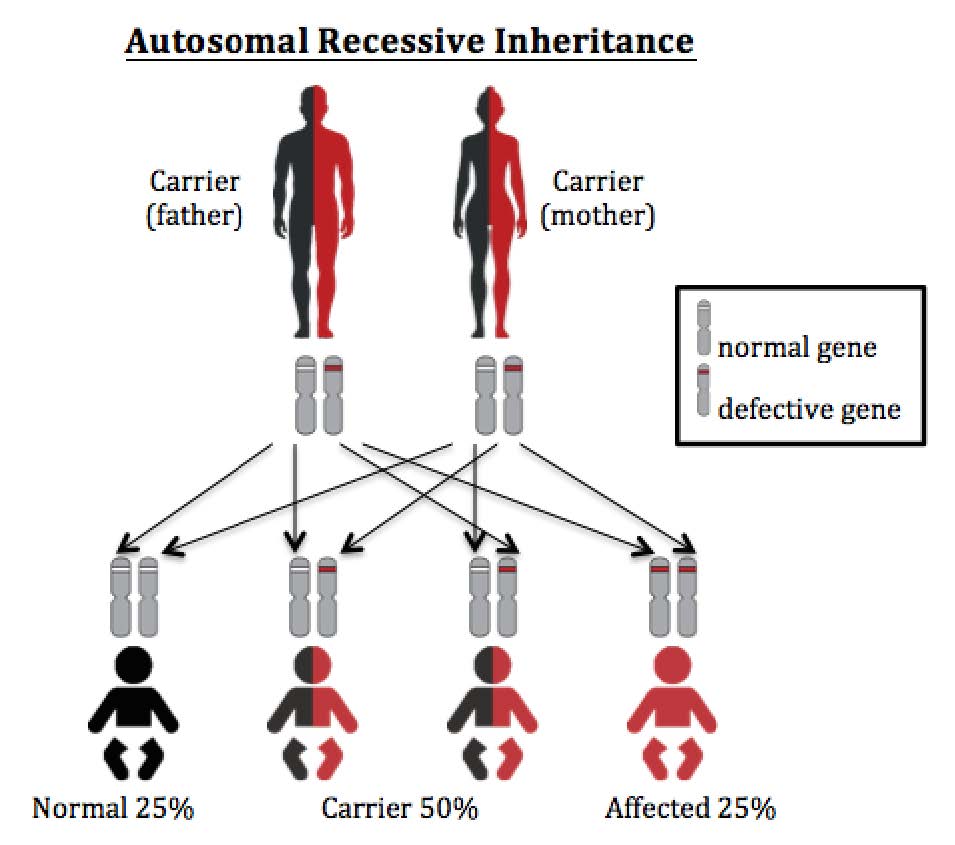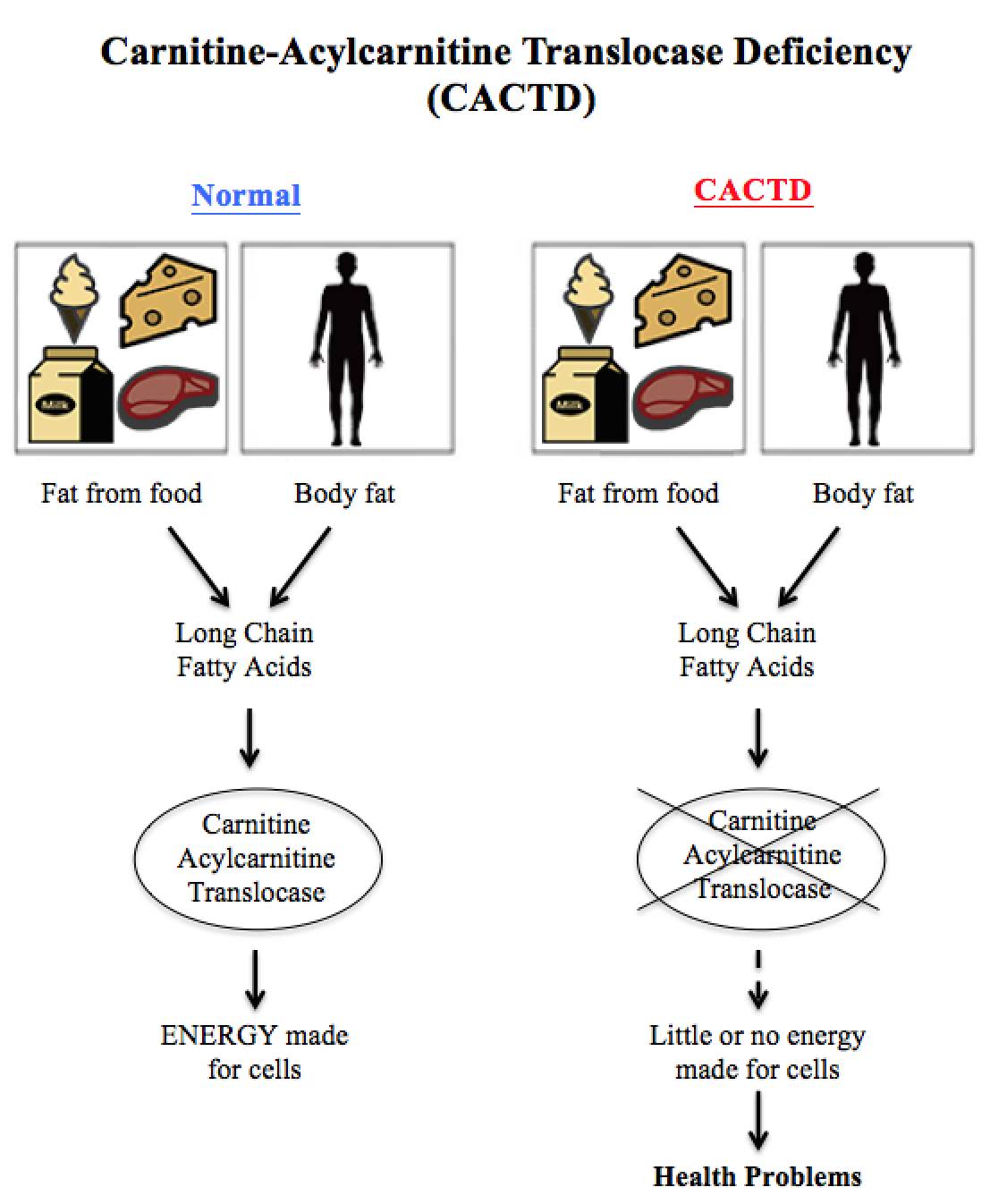
CACTD is an inherited fatty acid oxidation disorder in which the body cannot effectively process certain fats called "long chain fatty acids" due to inadequate or ineffective functioning of the "carnitine-acylcarnitine translocase" (CACT) enzyme.
Fatty acids are a major source of energy for the heart and muscles. During periods of fasting, fatty acids are also an important energy source for the liver and other tissues. Normally, long chain fatty acids must attach to carnitine to enter into the mitochondria inside the cells for energy production.
When CACT is insufficient or not functioning well, there will be problems in breaking down long chain fatty acids. This will result in problems with converting them into energy resulting in low blood sugar level (hypoglycaemia) as well as other problems arising from the build-up of toxic substances in the blood.

The original graphic is converted into the following text version for your easy access to the information.
Carnitine-acylcarnitine translocase deficiency (CACTD)
Our body breaks down fats from food into fatty acids when we eat, and breaks down fats from body stores into fatty acids during prolonged fasting and stress. Most fatty acids especially long chain fatty acids need to be carried to mitochondria by a protein called carnitine through a multi-step process. When functioning normally, our body will make carnitine-acylcarnitine translocase (CACT enzyme) to help transport the complex of carnitine-long chain fatty acids into mitochondria for energy.
In people with CACTD, the carnitine-acylcarnitine translocase is either missing or not working properly, making the complex of carnitine-long chain fatty acids cannot enter into mitochondria and causing long chain fatty acids cannot be metabolised properly. As a result, energy production is disrupted and metabolites build up in the body to harmful levels, causing serious health problems.
Everybody has two copies of genes, one from each parent, which tell the body how to make specific enzymes.
CACTD is an autosomal recessive disease. Only when babies inherit two faulty copies of the gene for CACTD from parents, the enzyme made does not work properly or is not even made at all.

The original graphic is converted in to the following text version for your easy access to the information.
Autosomal recessive inheritance
In autosomal recessive diseases, people with two faulty copies of gene (one from father and one from mother) will develop symptoms. People with only one faulty copy of gene are normal and they are called disease carriers. CACTD is inherited in autosomal recessive manner.
If both parents are CACTD carriers, for each pregnancy (no matter it is a baby boy or girl), there is a 25% (1 in 4) chance that the child has 2 copies of normal gene (who is not affected), a 50% (1 in 2) chance that the child has one normal and one faulty gene who is a carrier like the parents, and a 25% (1 in 4) chance that the child has two copies of faulty gene who is at risk for CACTD.
Babies with CACTD often show signs and symptoms within the first week of life. CACTD can cause episodic metabolic crisis.
Other problems that some CACTD patients may have include:
Metabolic paediatricians and dieticians will work together to give expert advice and care to your baby. When necessary, treatment is usually needed throughout life. The goal of treatment is to prevent accumulation of toxic metabolites and metabolic crisis.
It is important that babies with CACTD be fed regularly and do not go for long periods without eating.
Treatment of CACTD may include:
Also very important is to discuss and design a care plan with your doctor and dietician beforehand, to let you know how to care for and provide extra sugary foods during illness or when your baby is not feeding well to prevent a metabolic crisis.
If you are worried that your baby is ill, it is important to follow medical advice. Bring your baby to your local accident and emergency department immediately. Take any information that you have been given about CACTD, including this pamphlet, to the hospital with you.
For general queries on Newborn Screening Programme for Inborn Errors of Metabolism, please call 5741 4280 (Department of Clinical Genetics, Hospital Authority)
July 2024
Hospital Authority